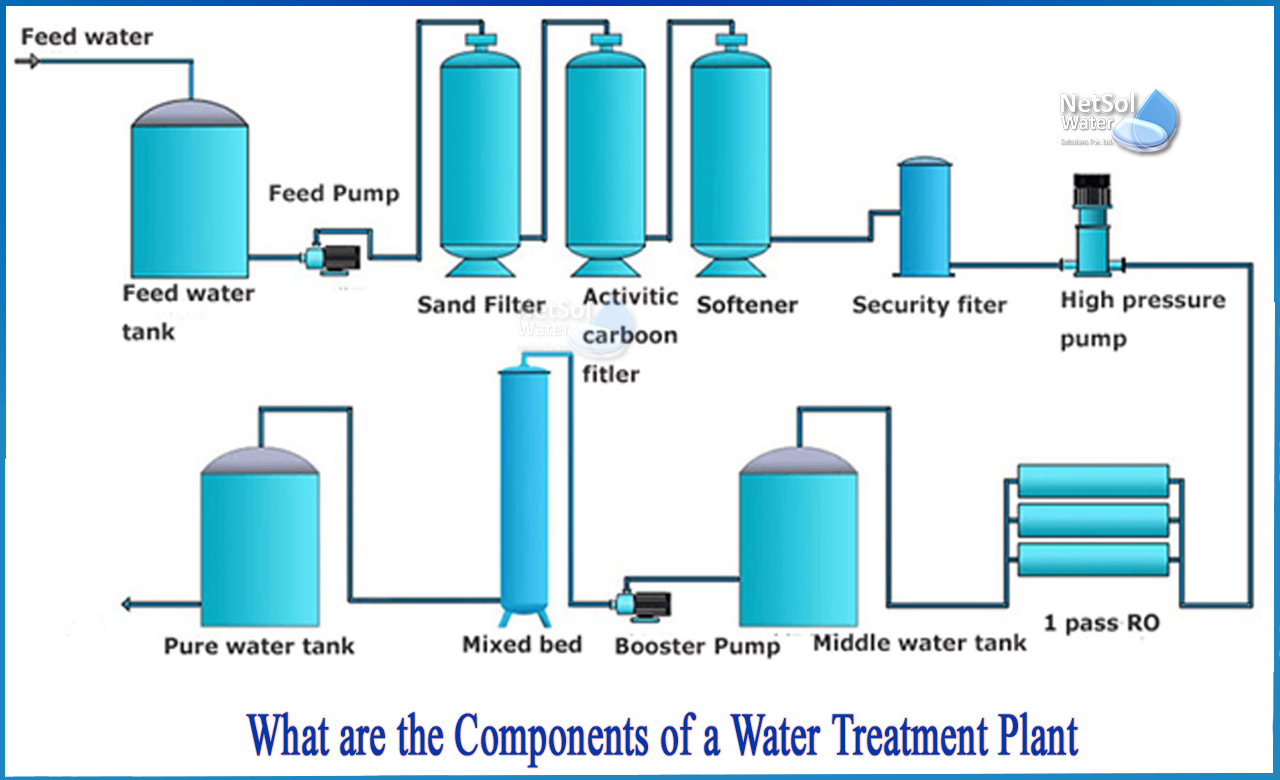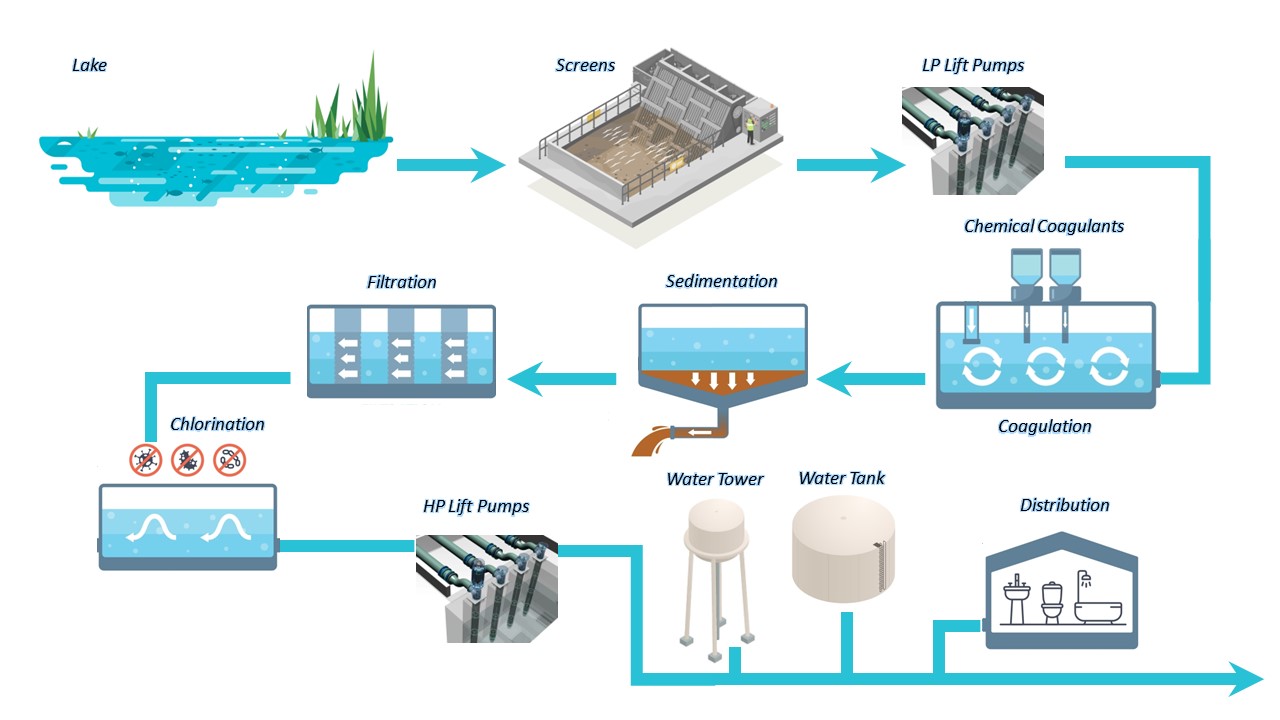10 Biggest Advantages to Invest in Water Technology Startups for a Sustainable Future
Discovering Water Technology Startups: How They Change Sustainable Solutions
Water Technology startups are emerging as critical players in the quest for sustainable solutions to international water problems. These firms take advantage of cutting-edge technologies to boost water effectiveness and monitoring. Their contributions resolve pushing obstacles such as deficiency and contamination. Nonetheless, regardless of their possibility, they face different challenges that might affect their success. Recognizing these dynamics clarifies the future of water sustainability and the function these start-ups might play in shaping it.
The Significance of Water Technology in Today's Globe
As international water scarcity heightens, the importance of water Technology becomes progressively apparent. Water Technology plays a vital role in addressing the difficulties posed by raising and diminishing freshwater resources need. It includes a broad series of innovations, consisting of innovative purification systems, wastewater therapy technologies, and wise watering services. These developments not only boost the efficiency of water usage but likewise advertise sustainable methods across different industries, consisting of agriculture, market, and metropolitan advancement.
The value of water Technology expands beyond source administration. It fosters strength against environment modification effects, such as droughts and floodings, by giving adaptive options for water preservation and management. In addition, it supports public health by guaranteeing accessibility to safe and clean drinking water. As the globe deals with growing water-related difficulties, the assimilation of innovative water technologies is vital for promoting sustainable advancement and protecting water schedule for future generations.
Innovative Solutions From Water Tech Startups
While standard strategies to water monitoring have actually served their function, a new wave of water tech startups is changing the industry with cutting-edge options (Water Technology Startups). These companies utilize innovative technologies to resolve pressing water concerns, such as deficiency, contamination, and inefficient distribution. Many start-ups use expert system and artificial intelligence to maximize water use and forecast need, causing even more lasting methods
In addition, a number of companies concentrate on developing sophisticated purification systems that remove toxins and make water secure for usage. Others check out decentralized water treatment modern technologies, allowing areas to handle their water resources much more efficiently. Some start-ups are pioneering wise irrigation services that decrease water waste in agriculture, advertising ecological preservation.
Situation Studies: Successful Water Technology Startups
Various water Technology startups have emerged as leaders in attending to worldwide water challenges through innovative methods. One remarkable instance is Xylem, which concentrates on water analytics and wise framework to optimize water use and reduce waste. Their options have been carried out in various districts, showing significant renovations in water monitoring performance.
Another effective start-up, Zero Mass Water, has actually developed solar-powered hydropanels that remove water vapor from the air, providing lasting alcohol consumption water in deserts. Water Technology Startups. This Technology has actually been released in a number of nations, ensuring communities have accessibility to tidy water
Lastly, AquaVenture Holdings operates a diverse profile of water-as-a-service services, dealing with water deficiency through desalination and wastewater therapy. Their jobs have actually proven important in areas facing extreme water shortages, showcasing the possibility of ingenious water modern technologies to produce long-term, positive influences. These case researches highlight the transformative possibility of startups in the water Technology industry.
The Role of Smart Technology in Water Management
Smart Technology plays a vital duty in modern water monitoring by leveraging IoT applications to enhance resource use. Data analytics boosts effectiveness by giving workable insights, while remote surveillance options enable real-time oversight of water systems. Together, these advancements transform just how water is managed, promoting sustainability and functional efficiency.
IoT Applications in Water
As water deficiency and management obstacles intensify worldwide, the combination of Net of Points (IoT) applications has arised as a critical solution in optimizing water sources. IoT Technology promotes real-time surveillance and evaluation of water supply, enabling extra effective usage and monitoring. Sensors deployed in different water frameworks can track high quality, circulation rates, and leakage, offering useful data to stakeholders. This information empowers utilities and consumers to make informed decisions, reducing waste and improving conservation initiatives. In addition, clever watering systems utilize IoT to optimize water distribution for farming, ensuring that crops receive the correct amount of water at the best time. On the whole, IoT applications are transforming traditional water monitoring techniques, promoting sustainability and strength in water resource systems.
Information Analytics for Efficiency
Using information analytics is essential for enhancing effectiveness in water monitoring. Water Technology start-ups are significantly using sophisticated analytics to maximize source appropriation and decrease waste. By analyzing information from numerous sources, these startups can determine patterns and patterns that educate much better decision-making. Predictive analytics can forecast water demand, permitting energies to change supply accordingly, consequently decreasing excess and shortages. In addition, real-time data handling enables the immediate detection of leaks read more and inefficiencies within distribution systems, significantly minimizing functional expenses. In addition, data-driven understandings empower stakeholders to carry out targeted preservation approaches, cultivating sustainable methods. Basically, integrating information analytics right into water monitoring not just enhances operations yet also advertises long-term sustainability in water source usage.
Remote Tracking Solutions
While traditional water administration systems usually fight with ineffectiveness, remote tracking solutions are transforming how water sources are taken care of. These ingenious innovations make it possible for real-time information collection and evaluation, permitting stakeholders to keep track of water quality, circulation rates, and usage patterns from afar. Making use of sensing units and IoT gadgets, remote surveillance supplies immediate insights that facilitate proactive decision-making. This shift not just boosts operational performance however additionally promotes sustainability by minimizing water waste and maximizing source allocation. Additionally, remote tracking systems can recognize potential issues prior to they rise, thereby reducing the threat of contamination or framework failure. As water Technology start-ups proceed to develop these remedies, the market is poised for substantial innovations in lasting water administration practices.
Difficulties Dealing With Water Technology Startups
Water Technology start-ups come across considerable obstacles that can impede their development and success. Trick concerns include protecting appropriate funding, maneuvering with intricate regulatory atmospheres, and completing in a congested market. These barriers need tactical preparation and advancement to get over.
Financing and Investment Obstacles
Although development in water Technology holds tremendous potential for addressing international obstacles, start-ups in this market usually face substantial financing and investment difficulties. Several capitalists continue to be mindful, perceiving the water market as risky as a result of its complicated regulative landscape and lengthy growth timelines. Additionally, start-ups usually have a hard time to demonstrate immediate productivity, which can prevent potential backers. Conventional equity capital might ignore water innovation, preferring fields with quicker returns, such as tech or customer products. Safeguarding grants and federal government financing can be affordable and time-consuming, more complicating economic stability. As a result, many innovative water Technology start-ups find themselves in a perilous placement, needing imaginative financing methods to navigate these monetary barriers and attain their goals
Governing Compliance Issues
Guiding regulative compliance is a considerable challenge for start-ups in the water Technology field, as they must grapple with a myriad of neighborhood, nationwide, and worldwide policies. These guidelines commonly include water top quality requirements, environmental defense legislations, and safety procedures, which can differ commonly across jurisdictions. Start-ups may find it challenging to navigate this complex landscape, specifically when scaling operations or going into brand-new markets. The costs connected with conformity can be significant, diverting resources far from innovation and product growth. Additionally, delays in acquiring needed authorizations or qualifications can hinder growth and market access. A robust understanding of regulatory structures is essential for these startups to assure sustainable operations and avoid prospective lawful effects.
Market Competition Characteristics
As water Technology start-ups arise in an affordable landscape, they deal with numerous difficulties that can hamper their development and innovation. Established companies typically dominate the marketplace, leveraging resources and experience to preserve their placements. Start-ups have problem with minimal funding, which limits r & d abilities, making it hard to compete on Technology and pricing. Furthermore, the rapidly developing nature of water modern technologies needs constant adaptation, additional straining startup sources. Regulative hurdles can complicate market entry, as compliance with environmental requirements is essential yet expensive. Attracting knowledgeable skill in a niche area provides an additional challenge, as bigger firms may provide more attractive employment bundles. Subsequently, these variables produce a complex setting for water Technology start-ups aiming to succeed.

The Future of Water Technology and Sustainability

The future of water Technology will likely focus on integrating expert system and data analytics to maximize water distribution and use patterns. By taking advantage of real-time information, business can forecast lacks and take care of resources better. Furthermore, sustainable techniques will certainly come to be a keystone of the sector, encouraging round economic situations where water is reused and dealt with. Inevitably, the ongoing evolution of water Technology will certainly be vital in producing durable frameworks efficient in meeting the difficulties positioned by climate adjustment and populace development while promoting environmental stewardship.
Frequently Asked Concerns
What Are the Key Metrics for Reviewing Water Technology Startups?
Key metrics for evaluating water Technology startups include market potential, scalability, client acquisition prices, income growth, modern technology development, governing compliance, ecological influence, affordable benefit, and group experience, all important for establishing long-lasting viability and success.
Just How Can People Support Water Technology Innovations?
Individuals can sustain water Technology innovations by investing in start-ups, advocating for policy changes, participating in neighborhood efforts, sharing expertise regarding lasting methods, and advertising awareness of water problems with social networks and regional occasions.
What Are Usual Financing Resources for Water Tech Startups?
Typical funding resources for water technology startups include endeavor resources, federal government gives, crowdfunding systems, angel financiers, and company collaborations. These financial opportunities aid facilitate technology and advancement in lasting water monitoring innovations.

Which Industries Advantage Many From Water Technology Advancements?
Industries such as farming, power, production, and community solutions benefit considerably from water Technology developments. These innovations boost water effectiveness, minimize costs, and advertise lasting practices, eventually adding to ecological conservation and source management.
Exist Any Governing Challenges Particular to Water Innovation?
Yes, water Technology deals with regulative obstacles, including compliance with environmental requirements, allowing procedures, and differing regional regulations. These intricacies can hinder technology and slow down the implementation of new modern technologies in the water administration market.
Water Technology start-ups are emerging as essential gamers in the quest for lasting solutions to international water problems. As global water scarcity escalates, the relevance of water Technology ends up being significantly apparent. Others check out decentralized water treatment innovations, enabling areas to manage their water sources more efficiently. One more successful startup, No Mass Water, has actually developed solar-powered hydropanels that remove water vapor from the air, supplying sustainable drinking water in dry regions. Their jobs have proven essential in regions encountering extreme water shortages, showcasing the capacity of cutting-edge water technologies to create enduring, positive effects.